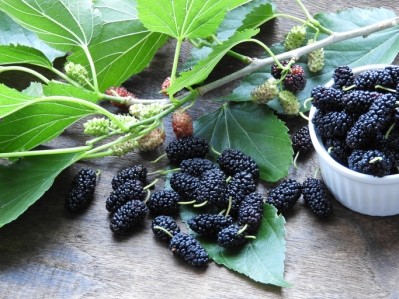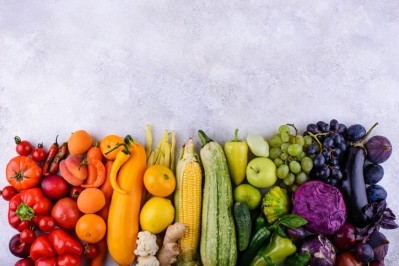Climate resilient crops: Scientists hail benefits of zinc, while ‘world's first’ gene-edited cowpea gets US approval

Zinc plays a pivotal role in plants' response to abiotic stress, including climate change, drought, and increased temperatures.
Researchers from Aarhus University, Denmark, in collaboration with Polytechnic University of Madrid and European Synchrotron Radiation Facility in France, discovered that zinc is crucial in the nitrogen fixation process of legumes. This process allows legumes to convert atmospheric nitrogen into a usable form, reducing the need for synthetic fertilisers.
Zinc acts as a secondary signal in legumes, helping to integrate environmental factors and regulate nitrogen fixation efficiency.
A transcriptional regulator called Fixation Under Nitrate (FUN) was identified as a novel zinc sensor. FUN decodes zinc signals in root nodules and regulates nitrogen fixation.
Understanding how zinc and FUN regulate nitrogen fixation could lead to strategies for optimising this process in legume crops, potentially enhancing nitrogen delivery, improving crop yields, and promoting more sustainable agricultural practices.
This discovery, outlined in a study published in Nature, could revolutionise legume-based agriculture by maximising crop productivity and reducing dependence on synthetic fertilisers, the researchers said.
The findings may allow for the cultivation of legumes in previously unsuitable regions, further expanding climate-resilient crop production.
Researchers are now investigating how to apply these discoveries to various legume crops such as faba bean, soybean, and cowpea.
Some potential drawbacks to using zinc in crop management
While zinc is an essential micronutrient for plant growth, there are some potential drawbacks to consider when using zinc in crop management. Excessive application of zinc can lead to toxicity in plants, and adding too much can create imbalances with other nutrients in the soil. Overuse of zinc fertilisers could potentially lead to zinc accumulation in soils or runoff into water systems, which may have environmental impacts. Not all crops respond equally to zinc supplementation, adding to the challenge of making it challenging to predict outcomes consistently.
But the benefits of addressing zinc deficiency often outweigh the risks when zinc is applied appropriately.
According to the authors of this study, the breakthrough in understanding zinc's role in plant biology opens up new possibilities for developing more resilient crops that can better withstand the challenges posed by climate change while potentially reducing the environmental impact of agriculture.
“It's truly remarkable to discover zinc's role as a secondary signal in plants, said Assistant Professor Jieshun Lin, the study’s first author. It is a vital micronutrient, and it has never been considered as a signal before. After screening over 150,000 plants, we finally identified the zinc sensor FUN, shedding light on this fascinating aspect of plant biology.”
Professor Kasper Røjkjær Andersen, described FUN an important transcription factor that control nodule breakdown when soil nitrogen concentrations are high. “FUN is regulated by a peculiar mechanism that monitor the cellular zinc levels directly and we show that FUN is inactivated by zinc into large filament structures and liberated into the active form when zinc levels are low.”
BetterSeeds announces USDA approval for the world's first gene-edited cowpea
BetterSeeds, meanwhile, has revealed that the company's innovative gene-edited cowpea (called PeaMAX), has been granted approval for commercialisation in the US by the USDA.
The Israel-based company uses gene-editing technology, specifically CRISPR, to genetically improve crops and design better seeds. It believes its innovative breeding technology is key to producing drought- and heat-resistant crops which are strongly needed in times of climate change.
It described the PeaMAX as “a game-changer for American agriculture”. Cowpea, a high-protein legume lauded for its drought and heat tolerance, has traditionally faced limitations for large-scale production. Its long growing season and unsuitability for mechanized harvesting have hindered its widespread adoption.
Through targeted gene editing, BetterSeeds claims to have optimised PeaMAX for mechanised harvesting using existing soybean growing machinery. Additionally, the improved variety boasts a shortened growing season, making it ideal for summer cultivation by soybean growers in the US, Brazil, and Argentina.
This USDA approval paves the way for its introduction to the US market. BetterSeeds, which recently appointed former a Bayer executive as chairman, believes PeaMAX represents the next generation of cowpea, empowering soybean growers with a high-profit legume option for seasons where traditional soybean cultivation faces challenges due to climate change.
It said PeaMAX boasts benefits such as:
- Suitable for mechanized harvesting: Integrates seamlessly with existing soybean harvesting equipment.
- Shorter growing season: Ideal for summer planting in key soybean growing regions.
- High protein content: Provides a valuable source of plant-based protein.
- Drought and heat tolerant: Thrives in challenging climates.




















